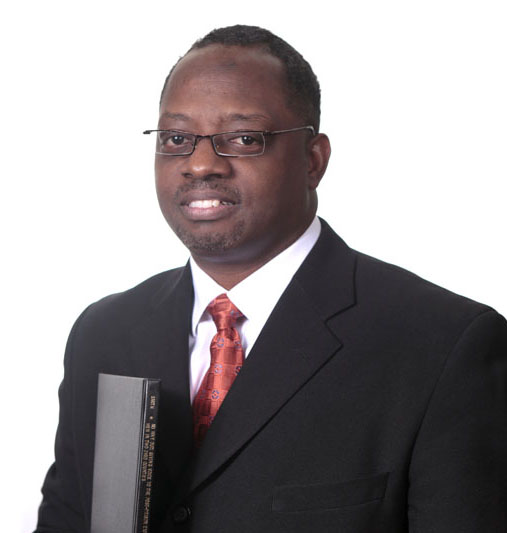Spotlight on Alumnus Dr. Ricardo Y. Smith
What are the most critical issues facing post-prison African-American men in Hamilton and Butler counties?
Employment
Housing
Registering to vote
Alumnus Dr. Ricardo Y. Smith (Ph.D. 2014) gives voice to local men facing these issues in his 2014 doctoral dissertation, No Way Out: Giving Voice to the Post-Prison Experiences of African-American Men in Two Ohio Counties.
Dr. Ricardo Smith is a Gulf War Veteran (1990-1994), a distinguished honor graduate from the United States Army Signal School in Augusta, Georgia, and an adjunct instructor in psychology at Cincinnati State Technical & Community College. Dr. Smith spent three and a half years researching and two months interviewing 10 formerly incarcerated African American men from Hamilton and Butler counties. A critical interpretative analysis conducted through in-depth interviews that examined the post-prison lives of African American men, his study addressed the post-prison obstacles of ex-offenders as they struggled to find employment, housing, and registering to vote. Dr. Smith examined the problems and the impact of labeling prisoners and investigated the issues of prison debt and prison money-making plots. The policy restraints impacting the lives of ex-offenders (who usually come from targeted poor communities) are described as an apparatus of social control, particularly upon African-American men. He found that ex-offenders often experience a post-prison system of no way out that has become a type of social incarceration.
Dr. Smith’s research questions focused on the post-prison impact on the lived experiences of 10 African American men. His hope was to give voice to these men as they attempt to rebuild their lives after prison, particularly as it relates to two questions:
• When returning to communities where social barriers exist and persist, what barriers do the men recognize? To what extent do these barriers affect their lives post-prison?
• To what extent do the men recognize the impact of the criminal label (criminal for life) on their lives post-prison? How does this label affect them when they are seeking employment, permanent housing, and trying to vote?
Dr. Smith hopes that scholars can better understand the dynamics of what it means to (re)live life post-prison. His recommendations for future research include the necessity to examine how and why the lack of employment remains the number one problem for returning citizens after prison. The men he interviewed returned to communities where jobs and housing remain scarce. If the returning citizen does not go to a halfway house or have family housing support, there are very few housing options through public assistance. Not being able to find housing or employment has been shown to lead to significant relapse implications and high probable rates of recidivism.
Dr. Smith points out that the ethnic minority prison population continues to rise. As a people, African Americans make up less than 15 percent of the U.S. population but almost 43 percent of the U.S. prison population. Are African Americans more criminal? Dr. Smith says the answer is no, but does answer yes to the fact that black persons are convicted and sent to prison statistically more often than other ethnic groups, particularly for federal drug convictions. He sees it as a racialized mechanism of incarceration that has produced a major social problem for young black teens and men.
More research is needed to evaluate and gauge the success of reentry and reintegration. Without statistics and stories to measure work and housing efficacy of ex-offenders, how can reintegration or rehabilitation be effective in terms of successful reentry? Without a permanent address, being registered to vote becomes another barrier of reintegration. Dr. Smith explains that ex-offenders need a second chance to redeem themselves and become contributing citizens in society. First steps of viable employment, housing, and the opportunity to vote will give the returning citizen a chance of true reintegration into the community. Reinvestment in people will increase public safety and reduce recidivism for the collective betterment of society and all communities.
In addition to his 2014 Ph.D. with a major in Public Policy & Social Issues and specialization in MLK Studies from Union Institute & University, Dr. Smith holds a master’s degree in Human Relations (Applied Psychology) from the University of Oklahoma, and a Bachelor of Arts in Political Science from the University of Cincinnati.
Dr. Smith’s dissertation about post-prison experiences of African Americans was recently featured on WVXU radio and CityBeat news in Cincinnati.
Learn more about Union’s Ph.D. in Interdisciplinary Studies program.
